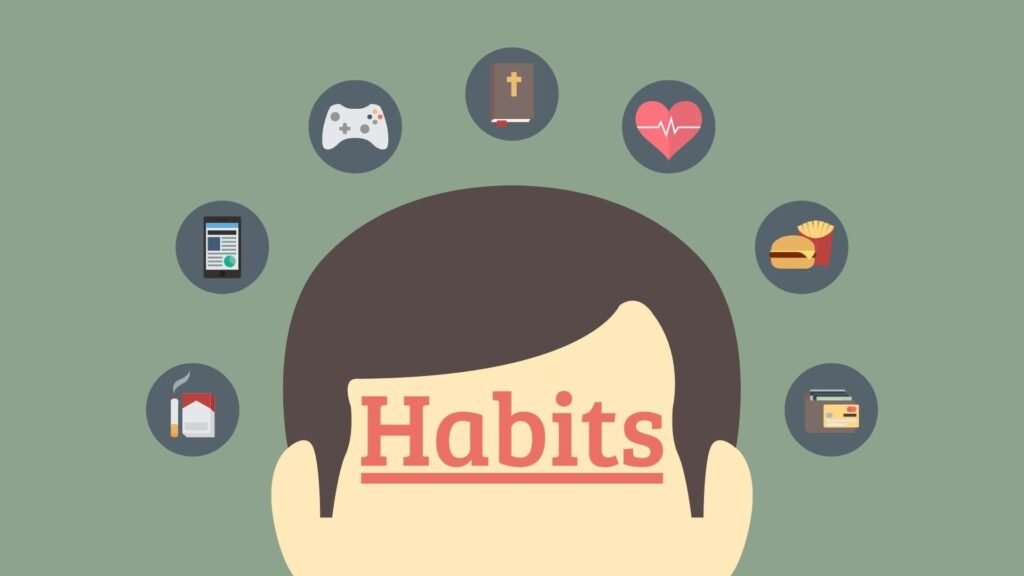Good vs. Bad Habits
Habit is what makes us what we are. A person whose habit is to play sports regularly is going to be a physically fit person. A person whose habit is to manage his finances will have better knowledge about how to maintain his wealth. Like any other aspect of life, there are good and bad habits, even in habits. Unfortunately, the habit word has a negative impact because people usually tend to associate the word with negative behaviors. But before learning more about how to differentiate between good and bad. Let us find out what is a habit.
What Is a Habit?

The word habit most often refers to a usual way of behaving or a tendency that someone has settled into, as in “good eating habits.”
In its oldest sense, however, habit meant “clothing” and had nothing to do with what a person does in a regular and repeated way. Today, this meaning is preserved only in phrases like “nun’s habit,” “monk’s habit,” and “riding habit” (clothes worn for horseback riding).
A habit is a simple pattern of behavior. Some are planned, and some aren’t. You do it without thinking about it. Sometimes, you set about to create a habit, but it develops frequently without knowing it. You get through day by using countless habits, many of which you might not be aware of.
Think about your day-to-day activities. Retrace your steps from the moment you woke up this morning. How many activities did you think about before doing them, and how many were automatically done by you? These behaviors can be deeply integrated into your brain’s neurological wiring, meaning people often have difficulty changing them even though they aren’t natural responses.
How Are Habits Formed?
Habits are formed through a repetitive cycle involving a cue or trigger, a specific behavior or routine in response to that cue, and a rewarding outcome. This process, often called the habit loop, is reinforced by neurological changes in the brain, making the behavior increasingly automatic with each repetition. Over time, habits become deeply ingrained in your daily life and are influenced by environmental cues.
Understanding this process can help you intentionally develop positive habits and break unwanted ones by modifying the cue, routine, or reward.
Difference Between Bad Habits and Good Habits?
ALSO READ: How to Stay Motivated During Exam Season
The brain doesn’t have to work hard when a habit is formed. Your body moves into autopilot mode.
Good habits generally have a positive impact on your physical, mental, and emotional well-being. Not only do they promote health and happiness, but they can also boost your personal growth. For example, regular exercise and healthy eating contribute to better physical health. With these small steps you will also feel your stress is reduced and your mood improved.
Bad work habits, on the other hand, often have negative consequences for your well-being. They can lead to health problems, increase stress, and hinder personal development.
How Do You Break a Bad Habit?
You must rewire your brain if you want to break a bad habit. You can make use of your brain’s rewards system to change your response to stimuli from behaviors that have negative consequences to those that have good ones. There are three steps that you can take that are effective in breaking a bad habit:
Know your triggers, behaviors, and rewards: Take a break from yourself and work on your habit loop. What are the triggers that cause you to engage in a particular habit? There may be one or more tiggers, so see if you can uncover all or most of them. Take note of how you feel and what your environment is.
Examine the rewards: Instead of trying to overcome your habit by sheer force of will (this is rarely successful), utilize awareness to understand how engaging in the behavior truly makes you feel. Notice the physical sensations you get from the action. Does engaging in the behavior cause you to feel worse (say, from guilt or feeling unpleasantly full or hungover)? Is it as rewarding as you thought, or do you feel poor again shortly after you complete the behavior?
Find a New Reward: Use your curiosity to explore rewards with a positive outcome. Convert your bad habits into good habits by finding rewards that pay better.
We’ve created this content for informational purposes only, and it reflects the views of its respective authors/entities (freelancers/interns) and not those of Winspire Magazine. Winspire Magazine does not endorse or vouch for the accuracy of the information provided in this content. It is the reader’s responsibility to verify and ensure the information is correct and up-to-date. Winspire Magazine disclaims any liability or responsibility for any damages or losses from using this content. Therefore, readers should take all necessary steps to verify the accuracy and reliability of any information presented in this content.



1 Comment
Comments are closed.